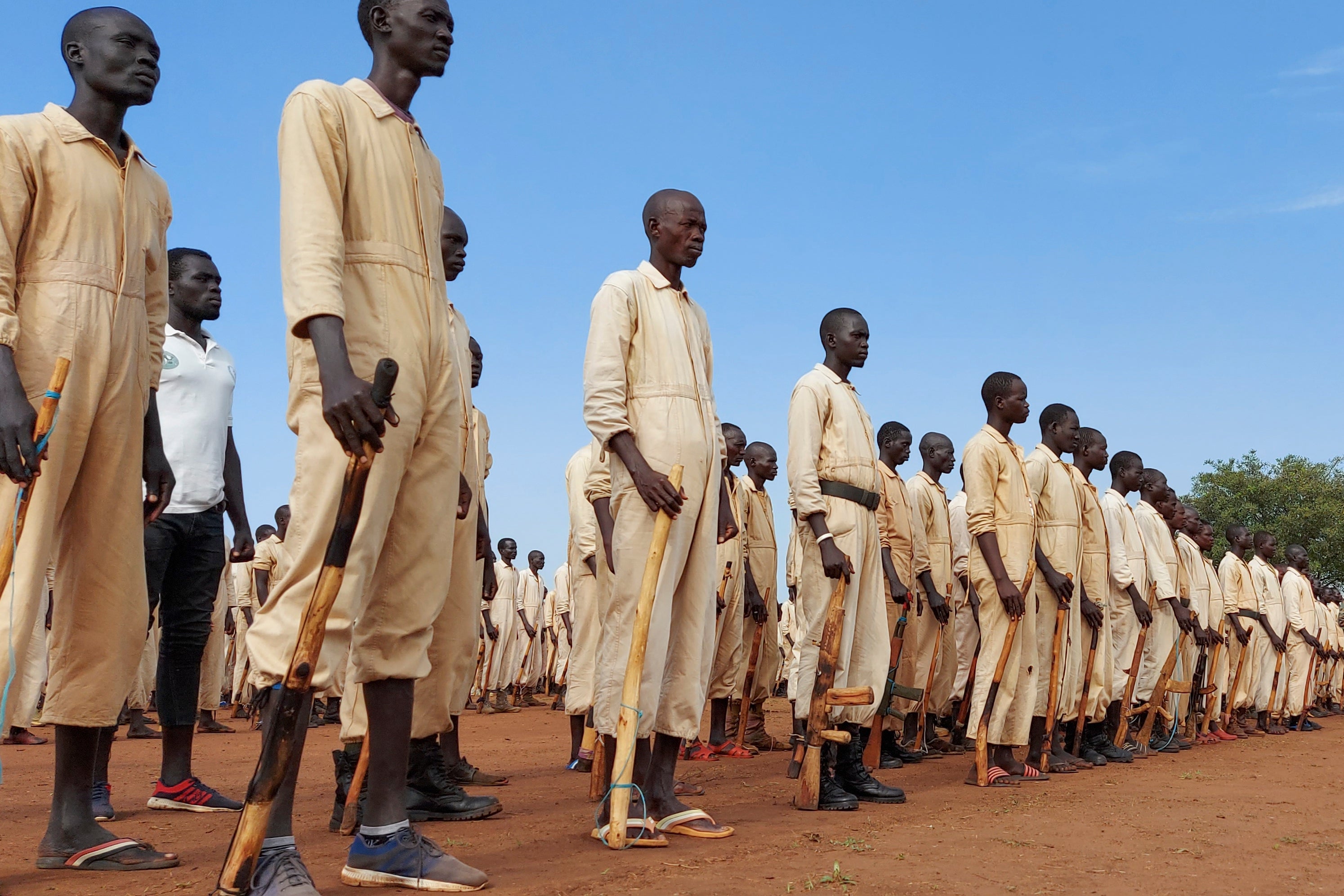UN report says South Sudan has healed little since civil war
A new United Nations report says South Sudan has made no real steps toward national healing more than two years after the end of a civil war that killed nearly 400,000 people

Your support helps us to tell the story
From reproductive rights to climate change to Big Tech, The Independent is on the ground when the story is developing. Whether it's investigating the financials of Elon Musk's pro-Trump PAC or producing our latest documentary, 'The A Word', which shines a light on the American women fighting for reproductive rights, we know how important it is to parse out the facts from the messaging.
At such a critical moment in US history, we need reporters on the ground. Your donation allows us to keep sending journalists to speak to both sides of the story.
The Independent is trusted by Americans across the entire political spectrum. And unlike many other quality news outlets, we choose not to lock Americans out of our reporting and analysis with paywalls. We believe quality journalism should be available to everyone, paid for by those who can afford it.
Your support makes all the difference.South Sudan has made no concrete steps toward national healing more than two years after the end of a civil war that killed nearly 400,000 people and sent more than 2 million people fleeing, a new United Nations report says.
Now some government forces are fueling new fighting by arming community militias with assault rifles, rocket-propelled grenades and machine guns to attack neighboring communities, says the report by the Commission on Human Rights in South Sudan, presented this week to the U.N. Human Rights Council.
It's a bleak look at what the authors call “the government’s manifest lack of political will to end impunity for serious crimes.”
The “staggering scale” of sexual violence, as well as corruption and the use of starvation as a weapon of conflict, remain dangers in a country ranked as one of the worst in the world to live. More than half the population is hungry, and COVID-19 is spreading through a nation whose health system was largely shattered.
Instead of peacebuilding and accountability, “political violence is spiraling out of control at the inter-communal level but driven by national actors who arm ethnic militias and paramilitary groups with military-grade weapons using the ostensible cover of cattle-raiding, which in turn leads to reprisals and revenge killings – all under the cover and control of parties to the conflict in South Sudan,” the report says.
Government spokesman Michael Makuei rejected the report, asking, “Why should we mobilize militia against certain mentalities at the time when we have already signed a peace deal and we are all working for it?” He asserted of the authors: “All these are reports written by people who are seated comfortably in Juba hotels. They write such reports to guarantee their continuity" in their posts.
In February, the country's rival leaders formed a coalition government that many observers prayed would last this time around. But further steps toward peace have fallen behind, and the country remains awash in weapons despite a U.N. arms embargo that was extended in May for another year.
The new report calls for the government to allocate at least 1% of the country’s oil revenues to reparations to citizens harmed during the five-year civil war. It also urges the government to establish a Commission on Truth, Reconciliation and Healing as well as a long-delayed hybrid court to address crimes including genocide, war crimes and crimes against humanity.
The report also seeks faster implementation of the peace deal that moves the country from a transitional government into elections and merges once-warring forces.
South Sudan, the world’s youngest country, has seen very little peace. It won its independence from Sudan in 2011 after years of fighting and erupted in conflict two years later as supporters of President Salva Kiir and deputy Riek Machar began fighting.
Machar is again Kiir's vice president under the new government.
Despite the formal end of the war, vicious fighting continues in parts of the country including Jonglei state, where hundreds of people have been killed this year. The survivors now face flooding that has displaced more than a half-million people, further imperiling food security as prices rise amid the COVID-19 pandemic and restrictions on travel.
In September, the U.N. secretary-general warned that South Sudan is one of four countries that face the risk of famine. In Jonglei, he said, the attacks on agricultural and pastoral land and the looting of livestock and food has left more than 1.4 million people facing crisis or worse levels of acute food insecurity. At least 350,000 children have severe or moderate acute malnutrition.
___
Ajak reported from Juba, South Sudan.